Partner Organisations
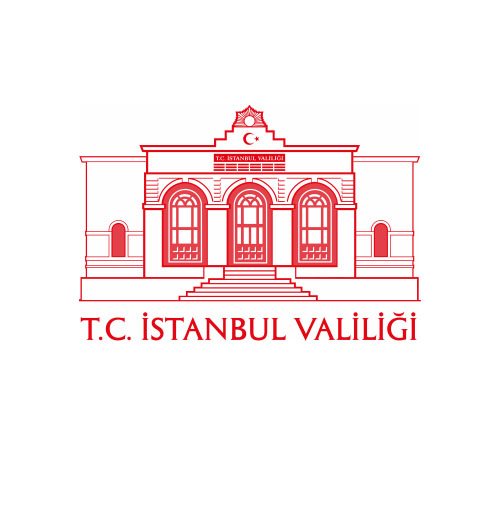
Governorship of İstanbul
Türkiye
Istanbul Governor’s Office – Istanbul, Turkey The Istanbul Governor’s Office is responsible for regulating and supervising the general administration in Istanbul. The Istanbul Governor’s Office implements the instructions and orders of the ministries and ensures the promulgation of government decisions and the implementation of laws and regulations. The GOI is the highest administrative authority in the city and works in various fields with around 2050 civil servants.
National and international projects are carried out by the European Union and Foreign Relations Office on behalf of the Istanbul Governor’s Office. Priority is given in projects to supporting disadvantaged groups such as people with disabilities, immigrants, NEETs and unemployed adults. In this context, the GOI cooperates with various public institutions, universities, training centres, vocational training centres and NGOs for youth and adults. Through its Continuing Education Centre, GOI provides training on topics of need.
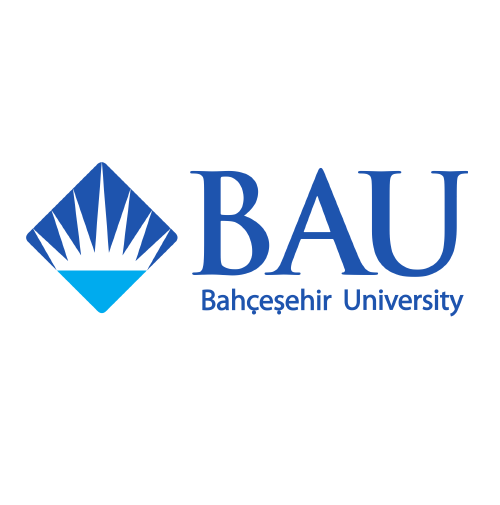
Bahcesehir University
Türkiye
Bahçeşehir University (BAU), with the mission of being “A World University in the Heart of Istanbul,” is a dynamic and innovative higher education institution offering education at international standards. Hosting a total of 24,223 students, BAU ranks as the fifth largest foundation university in Türkiye in terms of student population.
The university operates across seven campuses located in various parts of Istanbul, including Beşiktaş North, Beşiktaş South, Balmumcu, Göztepe, Galata, Kemerburgaz, and Pera. While the main campus is situated in Beşiktaş, the academic structure of the university consists of 10 faculties, 1 School of Applied Sciences, 1 Conservatory, 1 School of Foreign Languages, 2 Vocational Schools, and 1 Graduate School.
Thanks to the BAU Global network, students have the opportunity to pursue their studies in different parts of the world through affiliated institutions located in cities such as Berlin, Washington D.C., Batumi, and Cyprus. For all international programs, BAU students receive full support from the university’s International Office.
As part of its internationalization strategy, BAU has signed 157 Erasmus+ agreements with 24 European countries and 133 bilateral Memorandums of Understanding (MoUs) with institutions in 41 non-European countries. These collaborations provide students with a truly global educational and cultural experience.
BAU’s academic staff consists of 1,342 experienced and qualified faculty members. The university also supports scientific research and innovative projects through its 30 research centers and 25 state-of-the-art laboratories. Researchers at BAU benefit from both national and international funding opportunities, particularly in industry collaboration, innovation, product development, and entrepreneurship.
With 54,694 graduates, BAU offers students the opportunity to engage with industry even before graduation. Through its signature CO-OP Education Model, students gain direct experience in the business world while continuing their academic studies. With 2,330 CO-OP brand partnerships, 175 CO-OP branded courses, and 5,200 COOPERs (students benefiting from CO-OP internships), BAU continues to strengthen the bridge between academia and industry.
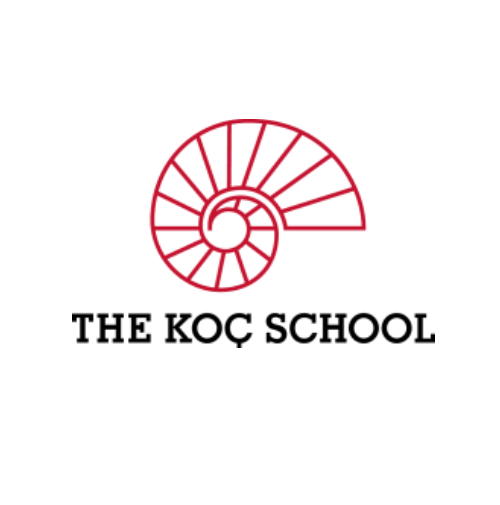
Koç Schools
Türkiye
The Vehbi Koç Foundation established The Koç School’s high school in 1988 and it quickly became one of Türkiye’s most prestigious educational institutions. With the Ministry of Education’s eight-year continuous education mandate soon after, the primary and middle schools were founded in 1998. The Koç School has 496 primary school students, 754 middle school students, 1251 high school students, 5361 alumni, and approximately 450 faculty and staff.
The Koç School is fully accredited by the Turkish Ministry of Education in K12 scope and is fully accredited by International Baccalaureate Organization (IB DP) in High School scope. The school is a bilingual school in Turkish and English but also offers the option of a second language: French, German or Spanish. Students choose between an IB track or a non-IB track at the end of tenth grade. It offers boarding for five or seven days a week for students of classes between high school prep to 12th grade at its dorms on its campus.
With its multicultural academic body and the global perspective brought by its bilingual education program, The Koç School continuously develops its education program at the highest level in terms of academic and ethical standards. The Koç School aims to develop the intellectual and humanistic qualities of all its students, from kindergarten to 12th grade, to become self-confident, moral, leading and responsible global citizens.
Koç School is located on a 151-acre (0.61 km2) campus on the eastern outskirts of Istanbul, near Tuzla, Istanbul. All activities of the facility management are carried out meeting the approved standards of the internationally accredited bodies including ISO 14001 Environment and ISO 50001 Energy Management Systems, Zero Waste standards.
The school has various facilities such as pool, fitness center, grocery, cafeteria, campus residency, social center, dorms, guesthouse to provide a holistic living condition of the school.
We use active learning methods, information technology and creative learning spaces in teaching different subjects. Throughout the year, we not only track the traditional education system but also enhance our learning community through various national and international projects. Each year, we organize more than 50 in-house projects and 30 school trips in Türkiye and abroad. Our students became the finalists of the World Scholars Cup in Dubai and went to Yale University Final Tours. Our mission is to create a learning space where students will learn by doing, provide a holistic well-being and be a part of a community in which they feel belonging, collaboration and respect.
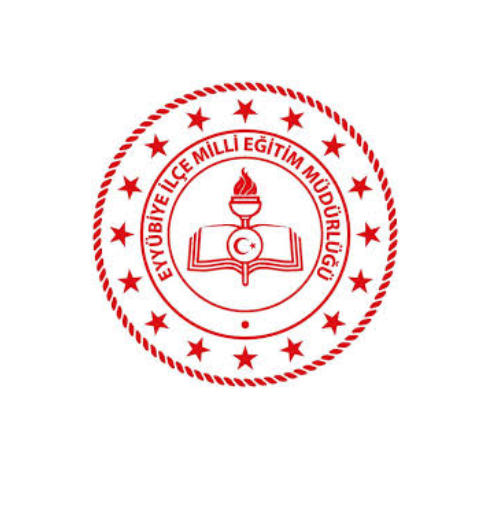
Eyyübiye Regional Directorate of National Education
Türkiye
Eyyübiye District Directorate of National Education was established in 2013 in Şanlıurfa. There are 38 kindergartens, 136 primary schools, 92 secondary schools, 26 high schools, as well as one Science and Art Center, Public Education Center, Guidance and Research Center and Vocational Training Center in the district.
There are 135.000 students and 5400 teachers working in the schools affiliated to Eyyübiye District Directorate of National Education. There are 6 student dormitories to meet the accommodation needs of our students living in rural areas. As Eyyübiye District Directorate of National Education, with the project named “Learn Robotic Coding, Stay in School” numbered 2020-1-TR01-KA101-090719, personnel mobility consisting of teachers from 5 consortium schools was realized in order to prevent school dropout. Our district has a huge number of students under temporary protection, namely refugees from Syrian conflicts, that is 50 km to our town.
We have STEM center as well, supported by Urfa STEM Center within the funding of Karacadağ Development Agency. Trainings are held for our students and teachers at Eyyübiye STEM center in our district. We run STEM workshops in all district along with managing teacher and student training. Our directorate has research and development team, which is active in the main educational technology projects in the region, has two main goals: To integrate edu-tech into education
from the early years of education and to contribute directly and indirectly to the STEM workforce through teacher training in the region. Added to that, we aim to rehabilitate students that are heavily affected by the earthquake that region suffered this year.

Universitatea din Tesalia
Greece
The University of Thessaly is the only higher education institution in central Greece. After merging with 2 other higher education institutions, the University of Thessaly currently has over 30 departments and enrols 40.000 students, making it the 3rd largest university in Greece.
The Department of Electrical and Computer Engineering enrols 1.000 undergraduate and graduate students and addresses areas that include electronics, energy, hardware, software, networks, and educational technologies. The informal Creative Technologies Learning Lab integrates emerging design, pedagogies, and ICT for generating innovative, rewarding, and effective learning experiences that build the knowledge and skills needed by industry and society in today’s world.
The lab has implemented over 35 R&D projects in the area of technology-enhanced learning focusing on diverse aspects such as game-based learning, learning communities, design thinking, simulations, online collaboration environments, and more. In the context of R&D, the lab has working relationships with educational authorities and educational institutions in the area of Thessaly and beyond.
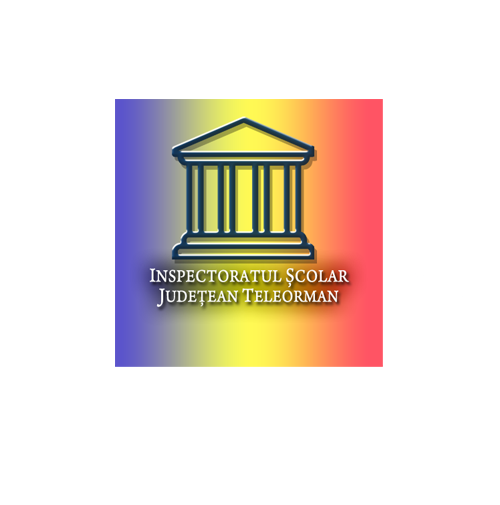
Inspectoratul Scolar Judetean Teleorman
Romania
The School Inspectorate in the County of Teleorman is the organization which coordinates all the educational institutions in the county (around 140 schools which have legal representation and another 200 which do not have legal representation and are connected to the 140 mentioned before). Our institution supervises and counsels the activity of these school in terms of educational process, but also regarding their administrative organization and human resources. In the county of Teleorman, there are currently around 3300 teachers, 345 auxiliary / didactic staff, 680 administrative staff and around 35.000 students (belonging to kindergarten, primary, secondary, theoretical/vocational & technical high schools).
The School Inspectorate in the County of Teleorman has around 30 employees, inspectors and administrative staff. The institution’s personnel is organised in two departments, each having specific tasks and coverage limits: the former, which refers to the curriculum, has in its structure the decentralised curriculum and the entire school compartments (kindergarten, primary and curriculum subjects, vocational teaching, special and minority teaching, adult education); the latter, which refers to management, has in its structure the implementation of decentralisation service, human resources management, human resource development, educational projects, permanent education, educational alternatives in private schools.
The team working in our institution assumes the following transversal strategic objectives: a greater involvement of all the partners in the system of education and training; a greater visibility of the results of European collaboration in education and training; the need to support the European and national instruments from the domain of transparency, recognition, quality assurance and mobility; the improvement of quality and of the comparison of indicators for decision making at European level in education and training.
According to the Managerial Plan of the institution for the current school year, The School Inspectorate in the County of Teleorman aims at: increasing the access to education through equal chances, reducing absenteeism and school abandon, facilitating insertion on the labor market of all graduates.
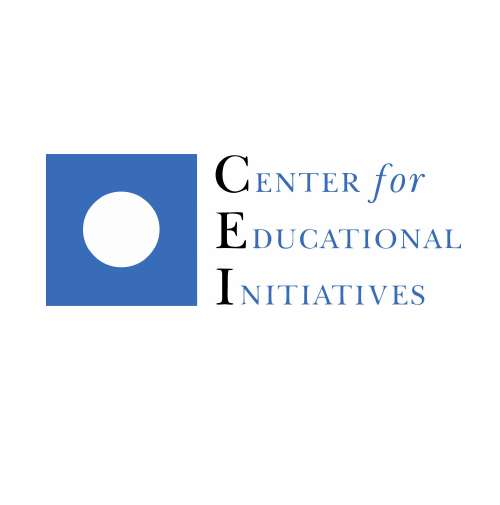
Education Initiative Association
Bulgaria
Center for Educational Initiatives (CEI) is a non-governmental, non-profit association aimed at enhancing innovative educational initiatives and facilitating educational reforms in the Bulgarian educational system. CEI is established in 2003 by Sofia City Court decision. The main objectives of the organization are to encourage co-operation in the field of education on local, regional and European level, to implement new teaching methods, mainly based on ICT, and to enhance co-operation
between public institutions, educational and scientific organizations and NGOs at all levels via professional networks and platforms.
The expertise of CEI embraces the following spheres:
– E-learning in education;
– Innovative pedagogical approaches;
– Training of teachers;
– Research and fieldwork;
– Organization of conferences, seminars and workshops;
– Organization of public discussions and debates;
– Informational campaigns;
In 2010, Center for Educational Initiatives established a Training center, whose main objective is to train teachers, school principals, university professors and education experts in e-learning skills and digital competencies. The Training center provides variety of methodological courses for ICT-based teaching, ICT-based assessment practices, etc. based on open educational resources as MOODLE. Over 4000 secondary school teachers from more than 150 schools in all the country were trained until now.
